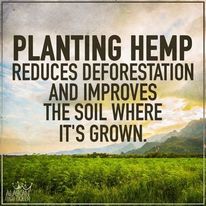Hemp is a versatile plant that has many potential benefits, including:
- Sustainable farming: Hemp is a fast-growing crop that can be grown in a variety of soil types and climates. It requires minimal pesticides and herbicides, making it a more sustainable farming option than many other crops.
- Environmental benefits: Hemp is a natural carbon sink and can help to remove pollutants from the soil. It also has deep roots that help to prevent soil erosion and improve soil health.
- Health benefits: Hemp seeds are a rich source of protein, omega-3 and omega-6 fatty acids, and other essential nutrients. Hemp oil is also rich in antioxidants and has anti-inflammatory properties.
- Industrial uses: Hemp can be used to make a variety of products, including textiles, paper, biodegradable plastics, and construction materials. These products are often more environmentally friendly than their traditional counterparts.
- Economic benefits: The hemp industry has the potential to create jobs and generate revenue for farmers, manufacturers, and retailers. As hemp becomes more widely accepted and legal to grow, it could become a major cash crop for many regions.
It’s important to note that hemp is often associated with marijuana, but it contains very low levels of THC (the psychoactive compound in marijuana) and is not a drug. Hemp is legal to grow in many countries, including the United States, where the 2018 Farm Bill legalized hemp cultivation.




